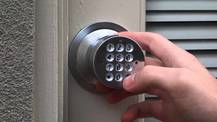Within hours of the attack, my friends (and friends-of-friends) took to blogging, emailing, Facebook posting and article-writing, in an effort to make sense of the murders and explain the implications. But here’s the thing. All the stories I’ve been reading hardly line up. The very same event has been understood in vastly divergent ways.
It is not the widening chasm between these divergent stories that worries me so much. Instead, it’s the fact that it has become so difficult to engage with those whose narratives don’t align with our own. In the recent past, our political differences have become so charged, that it is now much easier to invoke unifying slogans like, “Together We Are Stronger Than Hate,” than to risk losing a friend, or alienating a family member.
This time, though, we don’t have a choice. We need to talk and listen, because the way we are making sense of Pittsburgh is going to inform very real, pragmatic decisions about how to move forward. Particularly for those who belong to synagogues, who will have to decide:
Are we going to keep our synagogue doors open during services, or use keypad combination locks to keep out strangers? Are we going to raise money to hire more security personnel, or devote our energies and funds to beefing up our own ability to defend ourselves? And what are we going to teach our children? Will we explain that we Jews are - and have always been – targets, or will we shelter them from the discussion, to avoid fear about the consequence of difference.
Let’s address these questions together. The conversations are necessarily difficult. But they are urgent. We have a lot at stake.
Join us this Sunday evening, November 11, for Tribe Talk: New Jewish Conversations, where CWRU-Siegal provides an open space for community members to engage one another and share diverse perspectives. With featured guest, Jeremy Pappas, Regional Director of ADL and moderators Brian Amkraut and Alanna Cooper.
The event is free. Please register to help us appropriately prepare for the event. For details call 216-368-2091, or visit our website here.
- Some construe it as a random act of terror. While others view it as a single point in the Jews’ very long history of persecution.
- For some, it signals the need for stricter gun control laws. While others call for Jewish self-defense and the freedom to carry arms, even in houses of worship.
- For some, the event highlights the consequences of rhetoric emboldening white nationalists and the alt-right. For others, it highlights the dangers Jews face when they align themselves with the far-left.
- For some, the event serves as a warning that another Holocaust is possible - even here in this country. While others explicate the differences that distinguish America from pre-World War II Europe.
It is not the widening chasm between these divergent stories that worries me so much. Instead, it’s the fact that it has become so difficult to engage with those whose narratives don’t align with our own. In the recent past, our political differences have become so charged, that it is now much easier to invoke unifying slogans like, “Together We Are Stronger Than Hate,” than to risk losing a friend, or alienating a family member.
This time, though, we don’t have a choice. We need to talk and listen, because the way we are making sense of Pittsburgh is going to inform very real, pragmatic decisions about how to move forward. Particularly for those who belong to synagogues, who will have to decide:
Are we going to keep our synagogue doors open during services, or use keypad combination locks to keep out strangers? Are we going to raise money to hire more security personnel, or devote our energies and funds to beefing up our own ability to defend ourselves? And what are we going to teach our children? Will we explain that we Jews are - and have always been – targets, or will we shelter them from the discussion, to avoid fear about the consequence of difference.
Let’s address these questions together. The conversations are necessarily difficult. But they are urgent. We have a lot at stake.
Join us this Sunday evening, November 11, for Tribe Talk: New Jewish Conversations, where CWRU-Siegal provides an open space for community members to engage one another and share diverse perspectives. With featured guest, Jeremy Pappas, Regional Director of ADL and moderators Brian Amkraut and Alanna Cooper.
The event is free. Please register to help us appropriately prepare for the event. For details call 216-368-2091, or visit our website here.

 RSS Feed
RSS Feed
